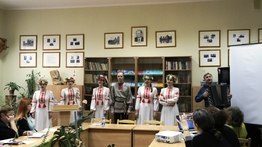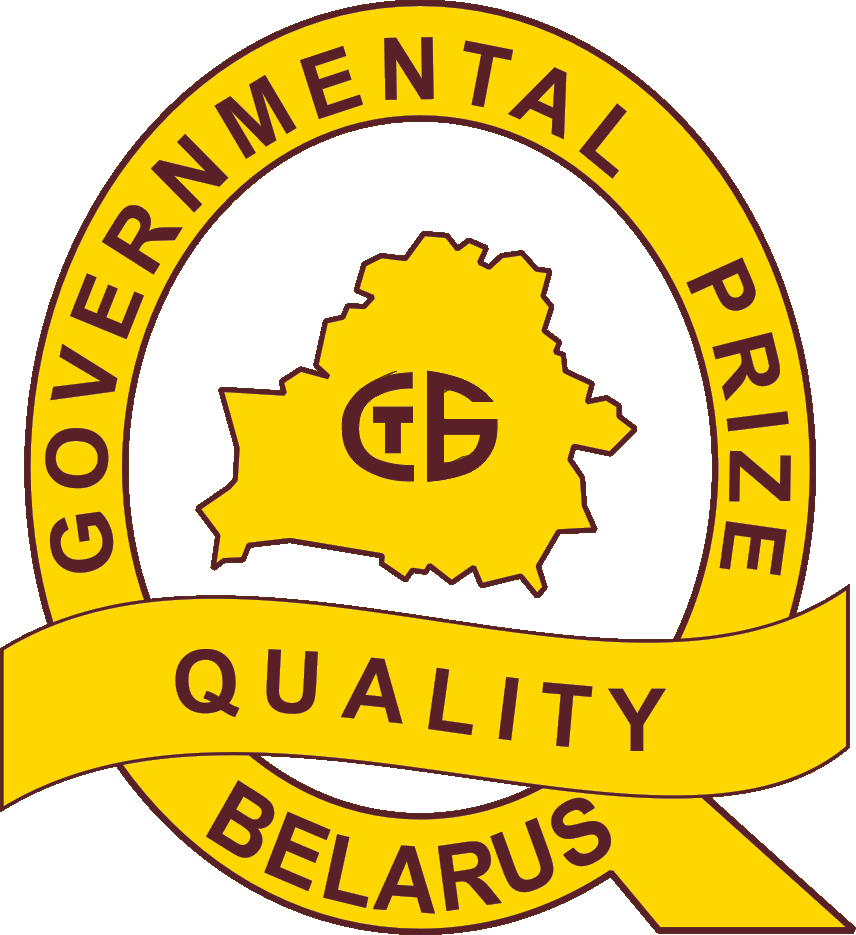-
University
21 Kosmonavtov Boulevard,
Brest, Belarus 224016
Phone number:
+375 162 37‑00‑96
box@brsu.by -
Faculties
-
Education
21 Kosmonavtov Boulevard, Room 217/1, Brest, 224016, Belarus
+ 375 162 37-01-27
marzans@brsu.by -
Science
21 Kosmonavtov Boulevard, Brest, 224016, Belarus, Room 207
+375 162 21-66-86
nis@brsu.by
inovac@brsu.by -
International activities
21 Kosmonavtov Boulevard, Academic building № 1, Room 117, Brest, 224016, Belarus
Phone numbers: +375 162 37-01-29
+375 29 21-06-115
int@brsu.by - Services
The 8th Scientific Conference «Slavonic Languages: system and description based criterion of research»
 On November 23-24, 2017 the 8th scientific conference «Slavonic languages: system and description based criterion of research» was held by the Department of Common and Russian Language Science at the Faculty of Philology of Brest State A.S. Pushkin University.
On November 23-24, 2017 the 8th scientific conference «Slavonic languages: system and description based criterion of research» was held by the Department of Common and Russian Language Science at the Faculty of Philology of Brest State A.S. Pushkin University.
The conference has become a tradition due to the relevance of the issue for the scientists in Slavic studies from Belarus, Ukraine, Poland, Czech Republic, Slovakia, Russia and Uzbekistan (This year an organizing committee was offered 120 subjects for papers). The Department defined the most problematic issues to be discussed:
- Linguistic and cultural problems of Slavonic lexicology and phraseology

- Current issues of modern Slavonic grammar
- Directions and typology of dynamics in Slavonic languages and dialects
- Comparative research of Slavonic languages
- Structure and semantics of the text
- Language of fine literature (poetics, individual style of an author, national and culture specific character)
- New tendencies in Slavonic language education
 The conference was opened by A.N. Sender, the Rector of Brest State A.S. Pushkin University who wished its participants a successful discussion of the ways to develop Slavonic languages. T.V. Senkevich, Dean of the Faculty of Philology, and O.B. Perehod, Head of the Department of Common and Russian Linguistics welcomed both Belarussian and foreign scientists on behalf of an organizing committee.
The conference was opened by A.N. Sender, the Rector of Brest State A.S. Pushkin University who wished its participants a successful discussion of the ways to develop Slavonic languages. T.V. Senkevich, Dean of the Faculty of Philology, and O.B. Perehod, Head of the Department of Common and Russian Linguistics welcomed both Belarussian and foreign scientists on behalf of an organizing committee.
First Deputy for Scientific work of the National Scientific Establishment «Research Centre» of Belarussian Culture, Language and Literature of the National Academy of Sciences of Belarus A.A. Lukashanets opened a plenary meeting of the conference by the report «Book publishing activity of Francysk Skaryna within Slavonic and pan-European context».
The following six reports were read at the plenary meeting: 
- Interaction problem of a language, dialect and regional languages (Prof. V.A. Maslova, the city of Vitebsk)
- Specific character of events and personalities interpretation of Belarusian history in L. Dayneka prose (Prof. Z.P. Melnikova, the city of Brest)
- An image of a country woman in comparative aspect of both Czech and Belarusian phraseologies (PhDr., candidate for Philological sciences, I.V. Kalita, the city of Ústí nad Labem, Czech Republic)
- A character of written and everyday speech of Surzhik speakers (Associate Prof. I.I. Braga, the city of Sumy)
- Distant education implementation in high education establishments (Candidate for Pedagogical sciences, N.V. Niculicheva, the city of Moscow)
- Statistics in comparative and historic study of Slavonic languages: usage of national and language corpora in morphologic processes (Associate Prof. O.A. Felkina, the city of Brest)
 All the reports were discussed afterwards at the meetings of 7 sections of the conference. The topic of the presentation reflected scientific interests of the host side and covered all the aspects of Slavonic languages learning: comparative, functional, system and descriptive, social and cultural, linguo-didactic.
All the reports were discussed afterwards at the meetings of 7 sections of the conference. The topic of the presentation reflected scientific interests of the host side and covered all the aspects of Slavonic languages learning: comparative, functional, system and descriptive, social and cultural, linguo-didactic.  At the final meeting the Heads of the sections pointed that a vivid discussion was caused by reports in the name-study, language education, cultural linguistics and individual style of modern Slavonic writers.
At the final meeting the Heads of the sections pointed that a vivid discussion was caused by reports in the name-study, language education, cultural linguistics and individual style of modern Slavonic writers.
The conference reached the goals and showed the achievements of basic Belarusian linguistics schools and their involvement into the European Slavistic context. But methodologic development of the questions under discussion hasn’t finished yet. That’s why the Department of Common and Russian Language Science of Brest State A.S. Pushkin University invites colleagues in the field of Slavistic science to meet again in two years.
N.M. Gurina, Associate Professor of the Department of Common and Russian Language Science








